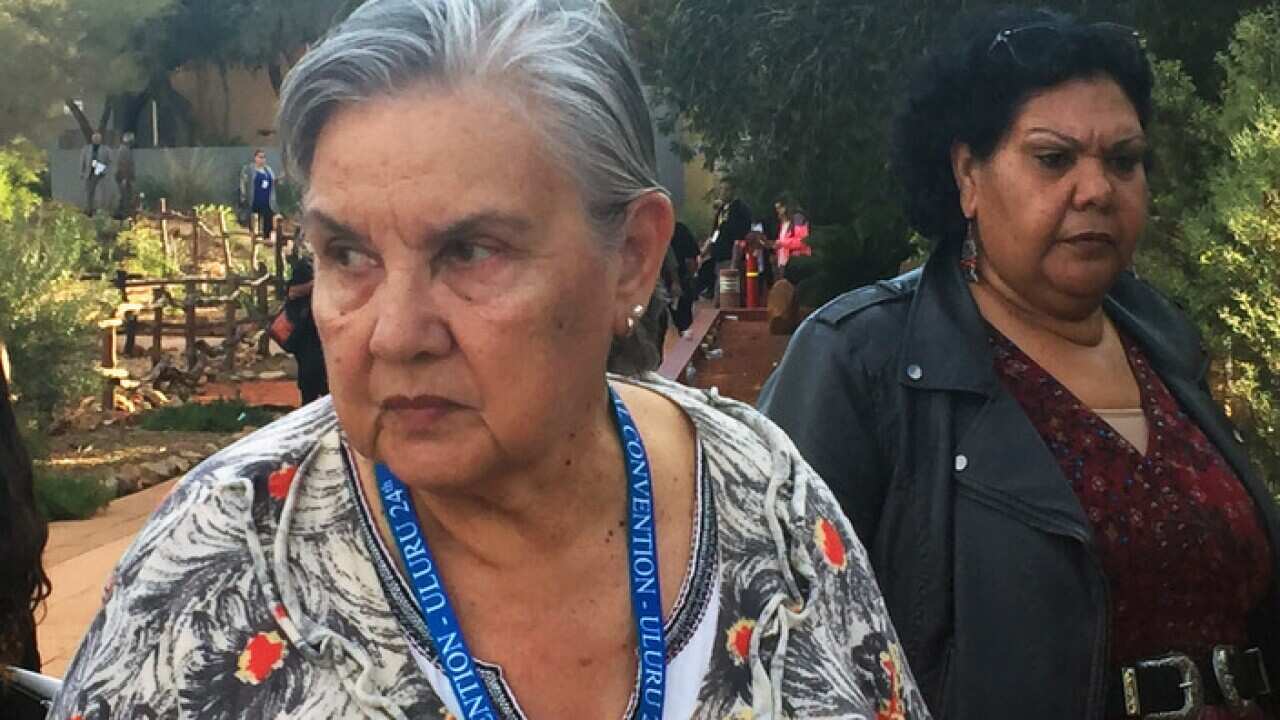More than 250 Indigenous leaders from across Australia gathered this week to work out the kind of amendments to the constitution they would like to see.
And a statement released after three days of talks says the priority will now turn to pursuing an Indigenous body in federal parliament, a treaty and a truth-and-justice-style commission.
The forum in Uluru was the largest meeting of its kind in at least a decade.
Referendum Council co-chairwoman Pat Anderson says Aboriginal Australians must have a voice in the government policies, programs and legislation that affect them.
But she says a truth-and-justice-style commission is an important step to Aboriginal people.
"When the Referendum Council finishes our work on the 30th of June, we've got another sort of team. The other thing that came up, and it will be done by the treaty commission, is a truth-and-justice period. Part of this healing of the nation and coming together and having a maturer nation, there has to be proper truth-telling, in the same way that there are in other countries in the world. Arriving at a treaty in this whole process, there will also be this truth-and-justice commission which will run parallel."
At the start of the Referendum Council summit, five options were up for discussion.
They were narrowed to two at the start of the second day, constitutional recognition and agreement-making, which would mean having a voice in parliament.
The delegates have confirmed they then abandoned pursuit of constitutional recognition in favour of agreement-making and a voice in parliament.
The council's Professor Megan Davis, from the University of New South Wales, says the options they have put forward come after discussions with Indigenous communities.
"Look, part of this process was to come to a decisive place in relation to a model, and that's what we've done. So, the dialogues discussed those five options. But the options that were the most important to communities when we went and spoke to them were quite substantive structural reforms, and they are the three that we discussed at this meeting."
The council has not ruled out additional forms of symbolically acknowledging the more than 50,000-year history of First Australians and their rights.
It is understood the delegates stayed up discussing the statement until 4 o'clock in the morning before the final day of talks.
Delegates supporting the conference say they felt very emotional and "teared up" when the statement was read aloud in the conference room.
Prime Minister Malcolm Turnbull referred to the Uluru talks ahead of the final statement, saying the Government and Opposition would seriously look at the council's conclusions.
"We'll consider those recommendations in due course, and, of course, we will consider them with the greatest of respect and gravity, as is appropriate to accord to them. These are weighty matters, momentous matters, and they deserve very serious consideration."
The Uluru Statement From The Heart comes on the eve of the 50th anniversary of the famed 1967 referendum to amend the constitution and grant more rights to Indigenous people.
The final recommendations are due to be presented to Mr Turnbull and Opposition Leader Bill Shorten in late June, with a final proposal then to be put to voters.
Seven delegates from New South Wales and Victoria had walked out of the summit on Day 2.
They said at the time their calls for a treaty were being ignored to pursue constitutional recognition.
Share

